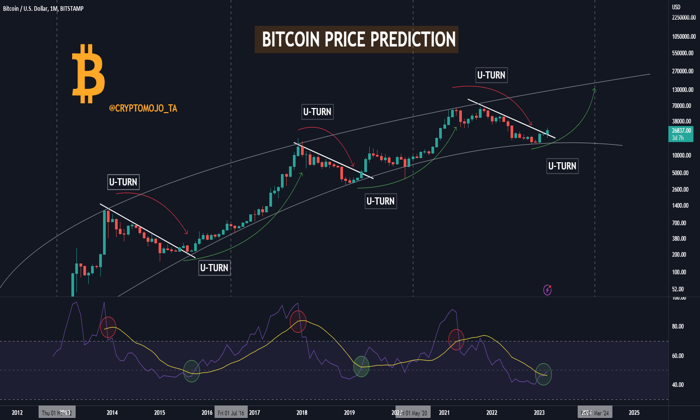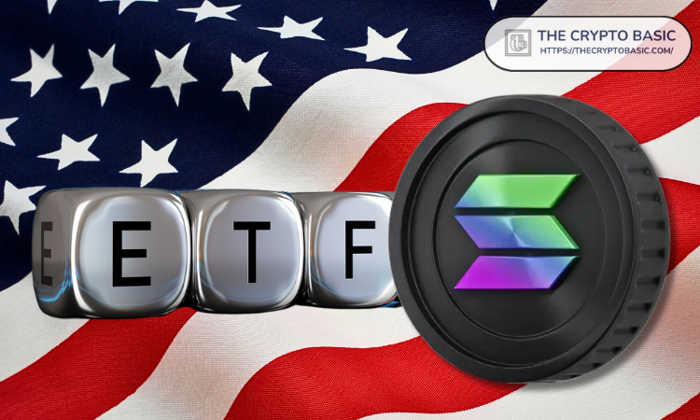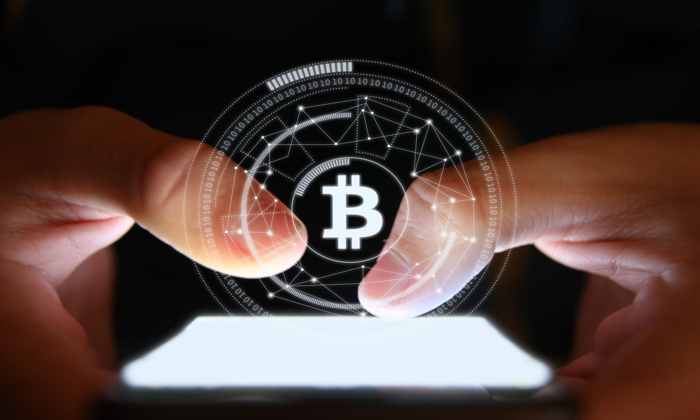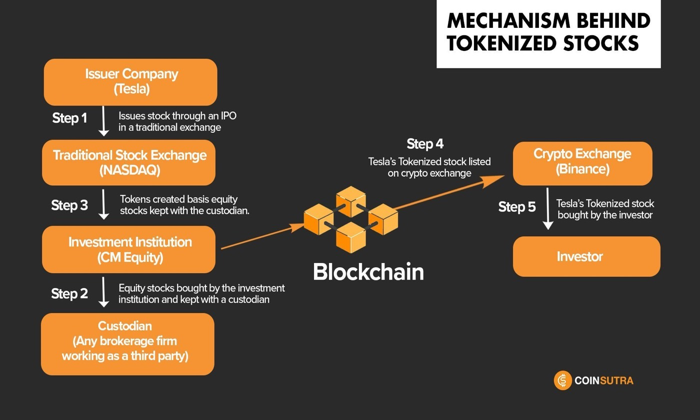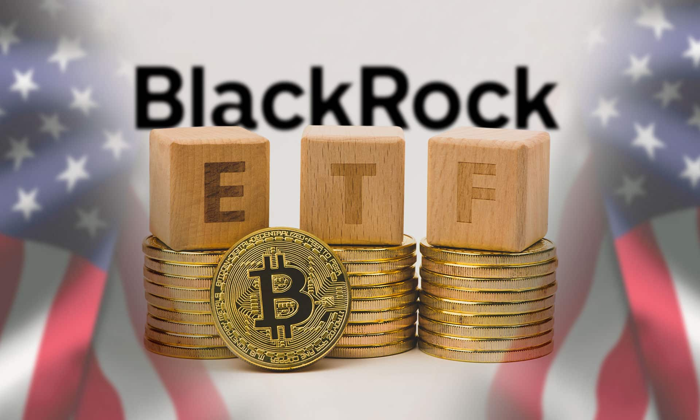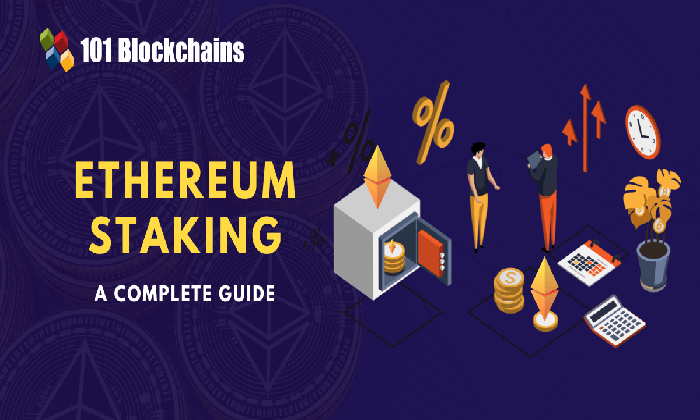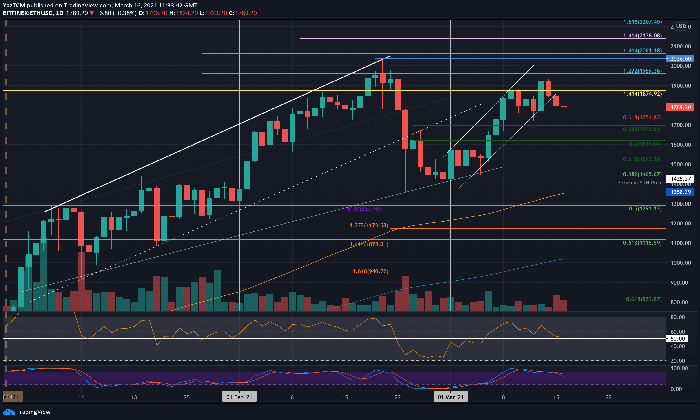As the world closely monitors cryptocurrency trends, Bitcoin price prediction remains a hot topic in financial discussions. A recent statement by Matthew Pines from the Bitcoin Policy Institute suggests that the price could soar to an astonishing $1 million if the US government acquires 1 million BTC. This anticipated surge reflects not only the potential market impact of such a purchase but also how it aligns with the US goals to become a leading Bitcoin superpower. The implications of the US’s strategic investment in Bitcoin on its valuation could redefine global investment landscapes. With rising institutional interest, Bitcoin’s valuation appears poised for substantial swings, particularly in light of recent policy proposals advocating for deeper acquisitions by the US Treasury.
Cryptocurrency enthusiasts are buzzing about the implications of potential US government acquisitions of Bitcoin. The discussion around forecasts for Bitcoin pricing continues to gain momentum, with significant voices in the industry spotlighting the Bitcoin Policy Institute’s insights on national strategies. If the American government engages in expansive Bitcoin purchases, it could alter not just its standing in the crypto sphere but also reshape the global valuation of digital currencies. By establishing a substantial Bitcoin reserve, the US might solidify its status and influence, often referred to as a Bitcoin superpower among analysts and investors alike. As we approach possible legislative changes and market shifts, the conversation around Bitcoin acquisition strategies and their consequential impact grows ever more critical.
Bitcoin Price Prediction: The Potential for a $1 Million Valuation
Matthew Pines and Zach Shapiro have presented a compelling scenario for Bitcoin’s future valuation, suggesting that if the United States were to purchase 1 million BTC, the price could skyrocket to $1 million. This assertion is based on the concept that such a significant acquisition would create a seismic shift in the global market, elevating Bitcoin to unprecedented heights. The current market, influenced by various factors, is ripe for such an impact, particularly as more institutional players and governments explore the benefits of Bitcoin as a reserve asset.
Shapiro’s insights align with the broader discussions at the Bitcoin Policy Institute, where analysts continue to explore how government actions affect Bitcoin pricing dynamics. A potential US acquisition of 1 million BTC could not only boost Bitcoin’s market cap but also incentivize other nations to reconsider their digital currencies. As the conversation around Bitcoin gains momentum, forecasts regarding Bitcoin price predictions become increasingly optimistic, with 1 million dollars per Bitcoin emerging as a realistic target.
The Role of the US Government in Bitcoin Acquisition
In light of recent developments, particularly President Trump’s executive order to establish a Strategic Bitcoin Reserve, the role of the U.S. government in Bitcoin acquisition has become critical. By potentially utilizing tariff revenues to buy Bitcoin, the U.S. could align itself strategically in the cryptocurrency landscape, escalating its status as a Bitcoin superpower. This strategy is not merely about acquisition; it’s about positioning the U.S. in a rapidly evolving digital economy where Bitcoin plays a central role.
The implications of such government involvement are profound, as it could lead to increased market stability and confidence in Bitcoin as a long-term investment. The Bitcoin Policy Institute advocates for this paradigm shift, emphasizing that the U.S. must take definitive steps to maintain its leadership in the cryptocurrency sector. With senators like Cynthia Lummis pushing for legislation to boost Bitcoin holdings, the conversation about US Bitcoin accumulation has never been more pertinent.
The Impact of Tariff Revenues on Bitcoin Investment
Using tariff revenues as a means to acquire Bitcoin is a budget-neutral strategy proposed by Matthew Pines, which reflects a pragmatic approach to increasing the U.S. Bitcoin reserve without burdening taxpayers. By leveraging non-tax revenues, the government can invest in Bitcoin without creating additional fiscal pressures. This could serve as a blueprint for other nations looking to enhance their crypto portfolios.
As the global economy continues to grapple with financial uncertainties, the idea of funding Bitcoin purchases through tariffs may gain traction among policymakers. Given the potential for high returns on Bitcoin investments, this strategy not only makes fiscal sense but can also bolster the U.S.’s stature in the crypto markets, serving as a model for countries considering similar moves.
Bitcoin Policy Institute: Shaping Future Strategies
The Bitcoin Policy Institute plays an essential role in shaping the narrative around Bitcoin acquisition and policy formulation. By engaging with decision-makers and influencers, the Institute aims to advocate for policies that support increased Bitcoin valuations and holdings in the U.S. market. Their analysis suggests that aligning public policy with Bitcoin acquisition strategies could position the U.S. favorably in a global context where digital assets are becoming increasingly relevant.
As they explore different avenues for Bitcoin investment, the Institute emphasizes the need for a coordinated approach that considers the geopolitical implications of becoming a Bitcoin superpower. Such strategies not only address domestic economic interests but also acknowledge the global shifts occurring in the financial landscape, ultimately impacting Bitcoin market trends.
The Global Response to US Bitcoin Strategies
The U.S. government’s potential shift towards acquiring substantial Bitcoin holdings has not gone unnoticed by other nations. Countries around the globe are observing how the U.S. integrates Bitcoin into its national strategy, leading to strategic considerations about their policies towards cryptocurrency. If the U.S. emerges as a Bitcoin superpower, it may prompt similar initiatives in other nations, triggering a new wave of Bitcoin adoption worldwide.
These developments illustrate the interconnectedness of global currencies and how the actions of one nation can ripple through the markets, impacting Bitcoin’s valuation. If the U.S. effectively mobilizes its resources to acquire Bitcoin, it could lead to a competitive race among countries to solidify their positions in the cryptocurrency landscape, shaping the future of global finance.
Future Prospects: Bitcoin as a Reserve Asset
The discussion about Bitcoin as a reserve asset is increasingly relevant as governments and institutions search for alternatives to traditional currencies. By recognizing Bitcoin’s value proposition, especially in a fluctuating economic environment, the U.S. can take a leading role in establishing Bitcoin as a legitimate reserve asset. The potential ramifications of this shift include a significant revaluation of Bitcoin, aligning closely with the predictions made by experts in the field.
Adopting Bitcoin as a reserve could reshape financial policies and risk assessments for countries looking to hedge against inflation and currency devaluation. As countries evaluate their financial strategies, Bitcoin’s prominence as a store of value may cement its role in global finance, reaffirming its status as a vital asset for the future.
Bitcoin’s Regulatory Landscape and Its Implications
The regulatory landscape surrounding Bitcoin is critical to its future growth and adoption. As the U.S. government establishes frameworks for Bitcoin acquisition, clear regulations will significantly impact how both institutional and retail investors approach Bitcoin. The establishment of formal guidelines could help mitigate the volatility often associated with cryptocurrencies, promoting a more stable trading environment.
Moreover, regulatory clarity may encourage broader participation in the Bitcoin market, leading to increased investments and market maturation. As policymakers grapple with the implications of Bitcoin’s rise, the framework they create will likely influence the dynamics of Bitcoin valuation over time, affecting the broader economy and the potential for Bitcoin’s recognition as a legitimate financial asset.
The Influence of International Markets on Bitcoin Valuation
International markets play a pivotal role in determining Bitcoin’s price and valuation. When countries like the U.S. make significant moves to acquire Bitcoin, it influences market sentiment and can lead to increased demand globally. The implications of these actions create a complex interplay where various factors, including economic stability and foreign investment, affect how Bitcoin is perceived and valued across different markets.
Furthermore, geopolitical events and economic policies can sway investor confidence, directly impacting Bitcoin’s valuation. By closely monitoring international responses to U.S. strategies, stakeholders can gain insights into potential price movements and market trends, ultimately assisting investors in making informed decisions.
Strategically Positioning the U.S. in the Bitcoin Landscape
Establishing the U.S. as a leader in the Bitcoin space involves more than just acquiring assets; it requires a comprehensive strategy that encompasses regulation, public policy, and international engagement. By promoting an environment that is conducive to Bitcoin innovation, the U.S. can attract investments and talent, fostering growth in the cryptocurrency sector. This strategic positioning will be vital as global competition intensifies.
Additionally, enhancing Bitcoin’s institutional adoption can further entrench its foothold in the economy. By supporting policies that facilitate Bitcoin transactions and invest in blockchain technology, the U.S. government can not only secure its position but also propel Bitcoin towards its potential as a mainstream currency.
Frequently Asked Questions
What is the potential impact of US Bitcoin acquisition on Bitcoin price prediction?
According to the Bitcoin Policy Institute, acquiring 1 million Bitcoin could dramatically affect Bitcoin’s price prediction, potentially pushing its value to $1 million. This scenario suggests that significant actions by the US government, such as purchasing large amounts of Bitcoin, can create seismic shifts in market valuation.
How does Bitcoin valuation relate to the idea of the US becoming a Bitcoin superpower?
For the US to be recognized as a Bitcoin superpower, its Bitcoin valuation must reflect an increase in holdings. Experts argue that substantial acquisitions by the US government could raise Bitcoin’s value if perceived favorably by the market, aligning with its strategic goals.
What role does the Bitcoin Policy Institute play in Bitcoin price predictions?
The Bitcoin Policy Institute provides insights into how government policies impact Bitcoin price predictions. Influential figures, like Matthew Pines and Zach Shapiro, analyze how strategic acquisitions by the US could influence global valuations and ultimately the price of Bitcoin.
What are the implications of tariff earnings on Bitcoin market impact?
Tariff earnings have been suggested as a budget-neutral method for the US government to acquire Bitcoin, which could significantly impact the Bitcoin market. By utilizing this revenue, the US could enhance its holdings, thereby influencing Bitcoin’s future price predictions positively.
Why could Bitcoin’s price reach $1 million according to recent analyses?
Analysts, including those from the Bitcoin Policy Institute, suggest that if the US were to announce a government acquisition of 1 million BTC, the resulting market reaction could drive Bitcoin’s price to unprecedented levels, potentially reaching $1 million based on increased demand and investor confidence.
How does US policy affect Bitcoin price prediction and market stability?
US policies regarding Bitcoin acquisitions, as discussed in the context of Trump’s executive orders, could significantly affect Bitcoin price predictions and market stability. Fluctuating tariff policies and strategic reserve plans contribute to both volatility and potential growth in Bitcoin valuation.
What strategies can enhance US Bitcoin acquisition efforts without impacting taxpayers?
The Bitcoin Policy Institute suggests that using alternative revenues, such as tariff income or fees from government operations, can fund Bitcoin acquisition without imposing additional burdens on taxpayers. This approach aligns with efforts to increase US holdings as part of a broader Bitcoin valuation strategy.
How does the concept of a Strategic Bitcoin Reserve relate to Bitcoin price prediction?
The establishment of a Strategic Bitcoin Reserve could fundamentally change Bitcoin price predictions by creating a perception of strong governmental backing for Bitcoin. This confidence might increase demand and elevate the cryptocurrency’s market valuation considerably.
| Key Point | Details |
|---|---|
| Tariff Earnings for Bitcoin Purchase | The US government can use tariff revenues to buy Bitcoin, maintaining a budget-neutral strategy. |
| Potential Bitcoin Price Surge | Acquiring 1 million BTC could potentially drive Bitcoin’s price to reach $1 million, creating a significant market impact. |
| Trump’s Executive Order | The Executive Order established a Strategic Bitcoin Reserve and aims for the US to become a Bitcoin superpower. |
| Senator Lummis’s BITCOIN Act | Renewed efforts to increase US Bitcoin holdings above 1 million BTC. |
| Budget-Neutral Acquisition Strategies | Methods such as using tariff revenues and royalties from resources can fund Bitcoin acquisitions. |
| Market Implications of Tariff Policies | The executive order led to market instability due to the fluctuating nature of tariff policies. |
Summary
Bitcoin price prediction indicates that if the US government were to purchase 1 million BTC, the cryptocurrency’s value could skyrocket to $1 million. This projection comes from discussions at the Bitcoin Policy Institute, emphasizing the potential market impact of significant Bitcoin acquisitions by the US. With an executive order establishing a Strategic Bitcoin Reserve, the current administration aims to position the United States as a Bitcoin superpower, further fueling speculation in the market. Strategies to finance these acquisitions without burdening taxpayers, such as leveraging tariff revenues, add a practical dimension to this ambitious goal. Overall, the conversation revolves around the intersection of Bitcoin policy and market dynamics, sparking interest from both investors and policymakers.
Bitcoin price prediction has become a hot topic, especially in the wake of discussions around the potential acquisition of Bitcoin by the United States government. With the strategic moves proposed by the Bitcoin Policy Institute, experts suggest that if the US were to buy 1 million BTC, we could see Bitcoin’s price soaring to an astonishing $1 million. This scenario could create ripples not only within the cryptocurrency space but also massively impact global financial markets. The insight from thought leaders like Matthew Pines emphasizes that this strategy could align with the nation’s vision of becoming a Bitcoin superpower. As such, understanding Bitcoin’s valuation and its market impact is crucial for investors and enthusiasts alike.
In exploring the future of cryptocurrency investments, Bitcoin’s trajectory remains at the forefront of discussions among financial experts and policymakers. When considering alternative insights into the cryptocurrency realm, terms like Bitcoin asset acquisition or digital currency positioning come into play. The implications surrounding the United States’ strategic plans to enhance its digital asset stockpile are noteworthy in context to rising Bitcoin valuations. As considerations of the US strengthening its position as a leader in the cryptocurrency market grow, analysts stress the importance of assessing how these policies will influence Bitcoin’s price dynamics. Ultimately, grasping the nuances behind Bitcoin valuation and market behavior can illuminate potential paths for both institutional and individual investors.
